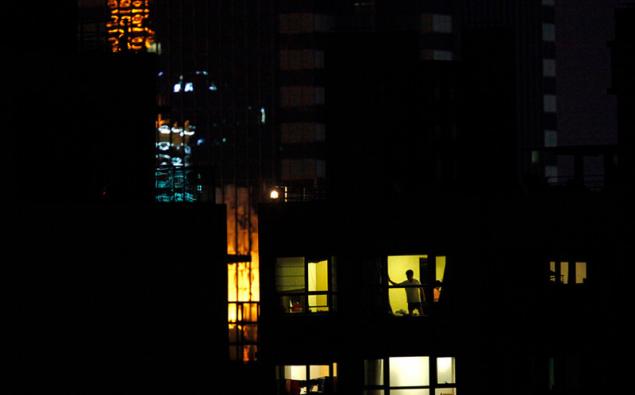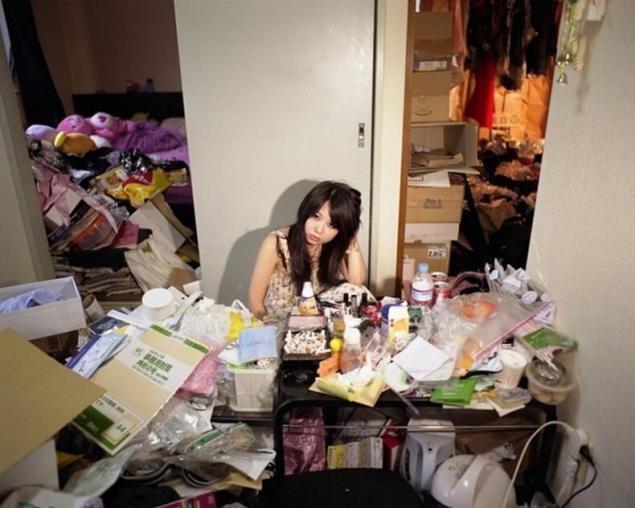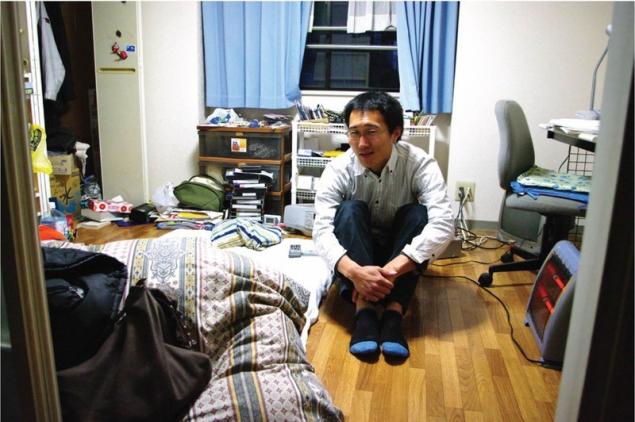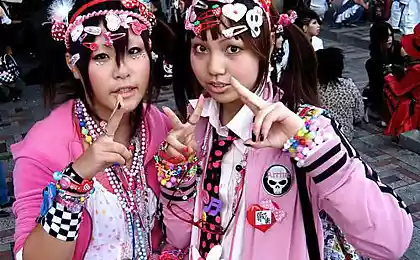462
Hikikomori: why are hundreds of thousands of young Japanese for years without leaving their homes
According to a report published by the government of Japan more than half a million young Japanese are voluntary shut-ins. This phenomenon called "hikikomori".
The Japanese Ministry of health, labour and welfare defines hikikomori as individuals, do not leave your house and isolating themselves from family and society for more than 6 months. 541 of thousands of people from 15 to 39 years who fit this description, 34% spent seven or more years in complete isolation. Another 29% are solitary life of 3 to 5 years.

The term hikikomori appeared in the late 20th century. In 1990-e years, about one million people, mostly young men aged 20-30 years, spent days in his room, reading manga, watching TV, or playing computer games. They refused to work or study, and often did not communicate even with family members not to mention friends.
To such people while there is no standard approach. Scientists believe that this condition, has not yet received the official status of a disease caused by a mixture of psychological and social reasons. The problem is much more common in men than women, as they are under much more pressure from society, standards which require social and professional prosperity.
Social anthropologist James Robertson, the editor of the book "Men and masculinity in contemporary Japan", describes this phenomenon:
"Men begin to feel the pressure of society in high school and for two to three years, their success in later adult life has almost predetermined. Hikikomori is a way of resistance to pressure. They seem to say: "Go to hell! I don't like it and I'm not going to do it"".
Failure in school and in the workplace can lead to social isolation, but it can be avoided voluntarily ustremivshis from the world. Some people have setbacks evoke a sense of inferiority, leading to anxiety disorders.
In 2010 the government estimated that in Japan there were already 700 thousand hikikomori, that is their official number dropped by almost a third. However, experts argue that the official data are incomplete, as statistics were only people from 15 to 39 years.
Tens of thousands of male hikikomori are outside the borders of this age. Last winter the magazine "the Japan Times" wrote about the increasing number of men older than 40 years, the "failure in the growing gaps of the fabric of social existence", and leading life in the style of a hikikomori. Most often this has happened to them after dismissal.
Hikikomori almost always come from affluent families and their parents often have a high level of education. The researchers found that educated parents confer on their children high expectations, but were more likely to provide material support to an adult disabled sons. According to statistics, about 60% of hikikomori live with both parents, and the rest with mothers.

The problem is observed not only in Japan. The review, published in the journal "Research and Advances in Psychiatry", described the cases of social seclusion, documented in many countries, such as USA, China, Spain, Australia, Bangladesh, Iran. In South Korea, people have a rather strong Internet addiction is a serious public health problem.

Small enemies: 11 habits that kill your productivityTrick yourself stronger: the Most dangerous thing we can do
If you believe the authors of the review, the conditions for the emergence of the hikikomori exist in any developed country, especially in times of high youth unemployment. In the end, modern technology allows us to feel surrounded by a society, even if in reality, we are hopelessly lonely.published
Translation: Eugene Yakovlev
Source: mixstuff.ru/archives/115467
The Japanese Ministry of health, labour and welfare defines hikikomori as individuals, do not leave your house and isolating themselves from family and society for more than 6 months. 541 of thousands of people from 15 to 39 years who fit this description, 34% spent seven or more years in complete isolation. Another 29% are solitary life of 3 to 5 years.

The term hikikomori appeared in the late 20th century. In 1990-e years, about one million people, mostly young men aged 20-30 years, spent days in his room, reading manga, watching TV, or playing computer games. They refused to work or study, and often did not communicate even with family members not to mention friends.
To such people while there is no standard approach. Scientists believe that this condition, has not yet received the official status of a disease caused by a mixture of psychological and social reasons. The problem is much more common in men than women, as they are under much more pressure from society, standards which require social and professional prosperity.
Social anthropologist James Robertson, the editor of the book "Men and masculinity in contemporary Japan", describes this phenomenon:
"Men begin to feel the pressure of society in high school and for two to three years, their success in later adult life has almost predetermined. Hikikomori is a way of resistance to pressure. They seem to say: "Go to hell! I don't like it and I'm not going to do it"".
Failure in school and in the workplace can lead to social isolation, but it can be avoided voluntarily ustremivshis from the world. Some people have setbacks evoke a sense of inferiority, leading to anxiety disorders.
In 2010 the government estimated that in Japan there were already 700 thousand hikikomori, that is their official number dropped by almost a third. However, experts argue that the official data are incomplete, as statistics were only people from 15 to 39 years.
Tens of thousands of male hikikomori are outside the borders of this age. Last winter the magazine "the Japan Times" wrote about the increasing number of men older than 40 years, the "failure in the growing gaps of the fabric of social existence", and leading life in the style of a hikikomori. Most often this has happened to them after dismissal.
Hikikomori almost always come from affluent families and their parents often have a high level of education. The researchers found that educated parents confer on their children high expectations, but were more likely to provide material support to an adult disabled sons. According to statistics, about 60% of hikikomori live with both parents, and the rest with mothers.

The problem is observed not only in Japan. The review, published in the journal "Research and Advances in Psychiatry", described the cases of social seclusion, documented in many countries, such as USA, China, Spain, Australia, Bangladesh, Iran. In South Korea, people have a rather strong Internet addiction is a serious public health problem.

Small enemies: 11 habits that kill your productivityTrick yourself stronger: the Most dangerous thing we can do
If you believe the authors of the review, the conditions for the emergence of the hikikomori exist in any developed country, especially in times of high youth unemployment. In the end, modern technology allows us to feel surrounded by a society, even if in reality, we are hopelessly lonely.published
Translation: Eugene Yakovlev
Source: mixstuff.ru/archives/115467























